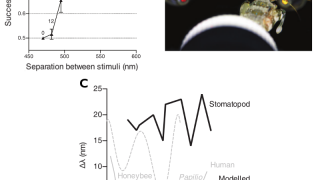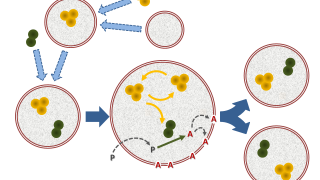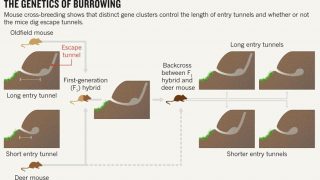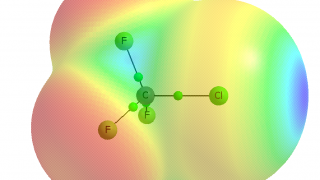
Mantis shrimps (part 2): lords of colour (or perhaps not)
In a previous article I wrote about the high speed attacks of the mantis shrimps. However, my favourite feature of these crustaceans is their unique eyes. They have two apposition compound eyes, typical of many diurnal insects and crustaceans but unusual in how freely they can move on their stalks. The eye forms an image […]








